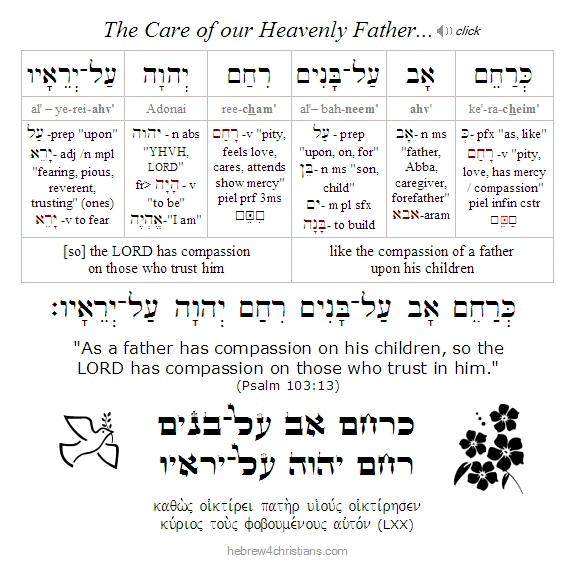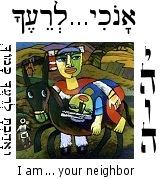|
The world is full of zealots. By default, everyone believes they are justified in their reasoning and in their passions. The "natural man" thus lives by this simple creed: I have a right to think or feel whatever I want. Morality is a matter of individual, subjective, and personal preference. There is no "objective standard" of moral truth in the universe: Values are relative to time and place... If it's true for me, that's all that suffices... In this way, the natural man assumes the posture of a self-styled "free agent" that is answerable only to himself. The zeal of the natural man says, "I am the master of my fate; I am the captain of my soul" (Henley: Invictus).
Note that the only abiding "offense" to the "natural man" is that there is a moral law that pervades the universe, and therefore he is morally accountable to the Lawgiver for his life. The idea that our actions are "under divine examination" is threatening to the supposed liberty of the natural man, who gladly tolerates all manner of sin and willful ignorance but refuses to tolerate anger against sin... The natural man hates the very idea of the moral law of God and all that it implies. It's no wonder that the true prophets of God were often murdered for speaking the truth.
The encounter (or collision) with moral reality (i.e., conscience) leads the natural man to become impassioned and even zealous, though usually this is expressed in some form of self-justification. The world's religions are filled with untold millions of people who seek to assuage their consciences by practicing various rituals or pledging allegiance to some creedal formula. What's common in most of these religions is the centrality of the ego, or the need to "save face" by making excuses of some sort. The ego is either advised to become "elevated" through religious practices or rituals (i.e., legalism, including the justification for "jihad" found in Islam), or else is encouraged to practice various techniques for "escaping" the world (i.e., mysticism, divine unity, etc.). Hence we see the dialectic between legalism and mysticism in so many of the world's religions.
Yeshua, on the other hand, spoke plainly of man's hopeless condition and the need for spiritual regeneration, or "rebirth." The natural man is spiritually dead and without hope apart from a miracle imparted directly from God Himself. As Yeshua said, "Unless you are born again, it is impossible (οὐ δύναται) see the Kingdom of God" (John 3:3). Rebirth comes by means of the Holy Spirit and leads to a new order of creation for the soul (2 Cor. 5:17, Gal. 6:15). Yeshua did not come to extinguish our egos as much as He came to resurrect and recreate us in His image (Rom. 8:29). "For we all, with unveiled face, beholding the glory of the Lord, are being transformed into the same image from one degree of glory to another. For this comes from the Lord who is the Spirit (2 Cor. 3:18). Indeed, since the self is ultimately defined by relationship, it is only after we are reborn in the Spirit that we can be said to have a spiritually real "self" at all. God gives the gift of a true, resurrected self to those whom He regenerates.
Escaping the Legalism Trap...
But what about those who receive the message of the gospel? How do they please God? After coming to Yeshua for life, some people tragically revert to the concept of the law once again. They attempt to "try harder" to please God and saddle themselves with various religious obligations (prescribed prayers, church services, rituals, etc.). They seem to forget that the law is powerless to save. Their logic goes something like this. I was condemned by the law, but because of God's mercy revealed in Yeshua, I am now forgiven. Therefore I am enabled by God's Spirit to keep the law, and therefore I should strive to be kosher, to observe various rituals, etc. This reasoning assumes that the law (i.e., the legal aspects of the covenant made at Sinai) with its verdict against us was not really done away with at the Cross of Yeshua (Col. 2:13-15). The "New Covenant," in other words, is not really all that new, and should be regarded as a "renewed covenant" instead. The upshot of this thinking is that Yeshua died on the cross so that we could all become followers of Moses!
I have written about this subject before, but I'll say it again here. There is indeed a "Torah" for followers of Yeshua, but this is His teaching... Indeed, the word Torah (תּוֹרָה) simply means teaching. But what did Yeshua teach about doing the "works of God?" Here's his explicit answer: "This is the work of God, that you believe in him whom he has sent" (John 6:29). Without faith it is impossible to please God (Heb. 11:6) since we are literally saved by hope, not by works of righteousness (Rom. 8:24, Titus 3:5). What God requires is authentic faith in His Son (אֱמוּנַת יֵשׁוּעַ). The single most important mitzvah is trusting in Yeshua for life... This is THE central commandment of Scripture. Legalism attempts to find the "key" to open the door into the Presence of God through various forms of self effort ("don't touch this," "don't eat that," etc. Col. 2:20-23). It's underlying hope is that if I do such and such (or abstain from such and so), God will be propitiated and I will be accepted. It is therefore a mode of relating to God based on His conditional acceptance and approval.... But faith is the key that opens the door to true freedom. It is the miracle that makes blind eyes see. When we truly "live in the Presence of the LORD" by faith, we are set free from the trap of legalism. We receive the love of God; we accept that we are accepted; and then we walk in God's zeal and care for our souls (in that order). We do not relate to God as Judge but as our Heavenly Father, our Abba, our loving Savior.
Guilt, shame, and spiritual death come from relating to God on the basis of our own zeal and supposed merits, but forgiveness, justification, and spiritual life come from trusting in God's zeal and passion for you.... Again, it's not so much a matter of finding the zeal within your heart, but rather receiving the zeal that comes from the LORD. We are sanctified by faith alone, just as we are justified by faith alone (Eph. 2:8-9; 1 Cor. 6:11). There is no "catch" in the contract, no loophole, and no exception to the "Torah of the Spirit of Life" (תּוֹרַת רוּחַ הַחַיִּים). If the Son sets you free, you are free indeed. This is the scandal of grace. Trying to please God through self-effort leads to exhaustion and frustration. Accepting that you are accepted and loved leads to peace and joy. God's love for you is the end of the law for righteousness (Rom. 10:4). In all things Yeshua is preeminent.
"In those who rest on their unshakable faith, pharisaism and fanaticism are the unmistakable symptoms of doubt which has been repressed. Doubt is not overcome by repression but by courage. Courage does not deny that there is doubt, but it takes the doubt into itself as an expression of its own finitude and affirms the content of an ultimate concern. Courage does not need the safety of an unquestionable conviction. It includes the risk without which no creative life is possible." - Paul Tillich
In closing, there is man's zeal, and there is God's zeal. The zeal of the LORD (קִנְאַת יהוה) represents His passion and eagerness to help those who are trusting in Him. Man's zeal is always insufficient, since self-justification - of any sort - invariably leads to the "Torah of sin and death" (תּוֹרַת הַחֵטְא וְהַמָּוֶת). This is precisely why legalism leads us to shame. As long as you think you can merit eternal life by means of your own efforts, you are relating to God as Judge (אֱלהִים) rather than as compassionate Savior (יהוה). You have yet to experience inner brokenness and therefore believe you can "justify yourself." It is the Spirit that gives us life - though always at the price of the death and resurrection of the ego. As Yeshua said, "Truly, truly, I say to you, unless a grain of wheat falls into the earth and dies, it remains alone; but if it dies, it bears much fruit" (John 12:24).
None of what I've attempted to share here implies that we are to be passive in our affections and in the exercise of our will. No, but the principle that governs our passion is to be derived from the "Torah of the Spirit of Life" and no longer from the "Torah of Law and Death." Because of Yeshua, we are free to trust in the zealous, passionate, and irrepressible love of God for our lives. The same passion that led Yeshua to die upon the cross is present to you today, if you have faith enough to receive it... God is the beginning and the end of our salvation: Kinat Adonai Tzeva'ot ta'aseh zot: "The zeal of the LORD of hosts will do this" (Isa. 9:7).
For more thoughts about this vital subject, please see God's Greater Zeal.
 |
כרחם אב על־בנים
רחם יהוה על־יראיו
ke·ra·cheim · ahv · al-bah·neem
ree·cham Adonai · al-ye·rei'·ahv

As a father shows compassion to his children,
so the LORD shows compassion
to those who fear him.
(Psalm 103:13)


|




